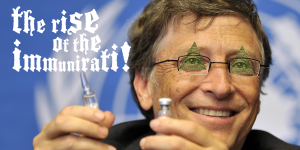Tagged: Welfare
THE RISE OF THE IMMUNIRATI
John Key’s dismissal of compulsory immunisation of children after the Tony Abbott’s proposal of ‘no jab, no pay’ for Australians receiving welfare payments or child tax rebates was a wise decision. Though a trivial debate, it raises the question of where public interest can legitimately override parental choice. The real test is twofold: does it address a real public need or crisis, and does it protect children from direct harm.
In the case of public need or crisis, the argument completely falls flat. The Ministry of Health has successfully achieved 94% immunisation of all children at 8 months old within the December quarter of 2014. With near universal levels of child immunisation, any government attempts to address hugely improved but continued gaps notable among Maori and Pasifika children will likely depend on similar methods of community healthcare provision, access to services, and parental education.
The second test – prevention of direct harm – is more complex. Parental choice exists only within adequately providing the ‘necessities of life’ including dietary, disciplinary, and financial. Exemptions for questionable practices are usually given for religious and cultural reasons, including medical such as the right of Jehovah’s Witnesses to deny their children blood transfusions except in life or death situations) or ritual practices like male circumcision. Government intervention in favour of the ‘public interest’ commonly occurs where parental actions contribute to physical harm, especially when criminal and/ or results in death. Prominent examples include the ban against female circumcision and the repeal of Section 59 of the Crimes Act – the legal defence of child discipline in cases of manslaughter or murder involving parents.
Public intervention in a child’s health tends to apply to denial of life once someone is sick through an unwillingness to take action or change behaviour. This could apply to blood transfusions to a Jehovah Witness child at risk of death, or even diet. In 2002, a couple who adhered to Seventh Day Adventist and vegan beliefs were convicted of manslaughter for refusing to change their baby’s diet despite life-threatening illness. Using these examples, while there is a strong case that anti-immunisation beliefs can contribute to harming children if infected with preventable diseases, there’s no denial of treatment nor is there harm as a direct consequence of parental actions. Therefore, anti-vaccination fails the public interest test of causing harm.
Immunisation has elicited a passionate response largely from an elitist attitude of those who bemoan the ‘bad lifestyle choices’ of others. Largely, this is isn’t about immunisation but ‘welfare bashing’ using immunisation as a tool. Targeting those receiving the dole and/ or tax credits with penalties, the Abbott Government perfectly channels prejudices, especially among many middle and upper class people who rail against the ‘nanny state’ and defend individual freedom but have no problem using these powers against those they consider worth less and whose problem is merely ‘making the wrong choices’. For those who truly care about immunisation, hippies make an easy mocking target, yet still in the context of other mockable choices including homeopathy, naturopathy, and crystals. However with hippies, we at least more readily cite lack of education and false assumptions. If governments wish to increase immunisation rates, educating parents and other proven community health approaches are far more effective than policy for the baying mob.
